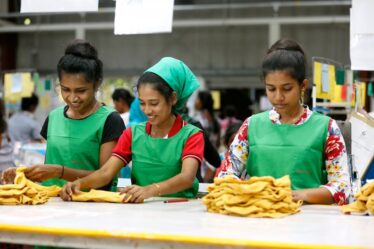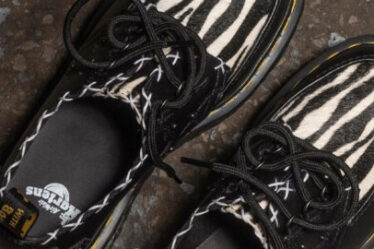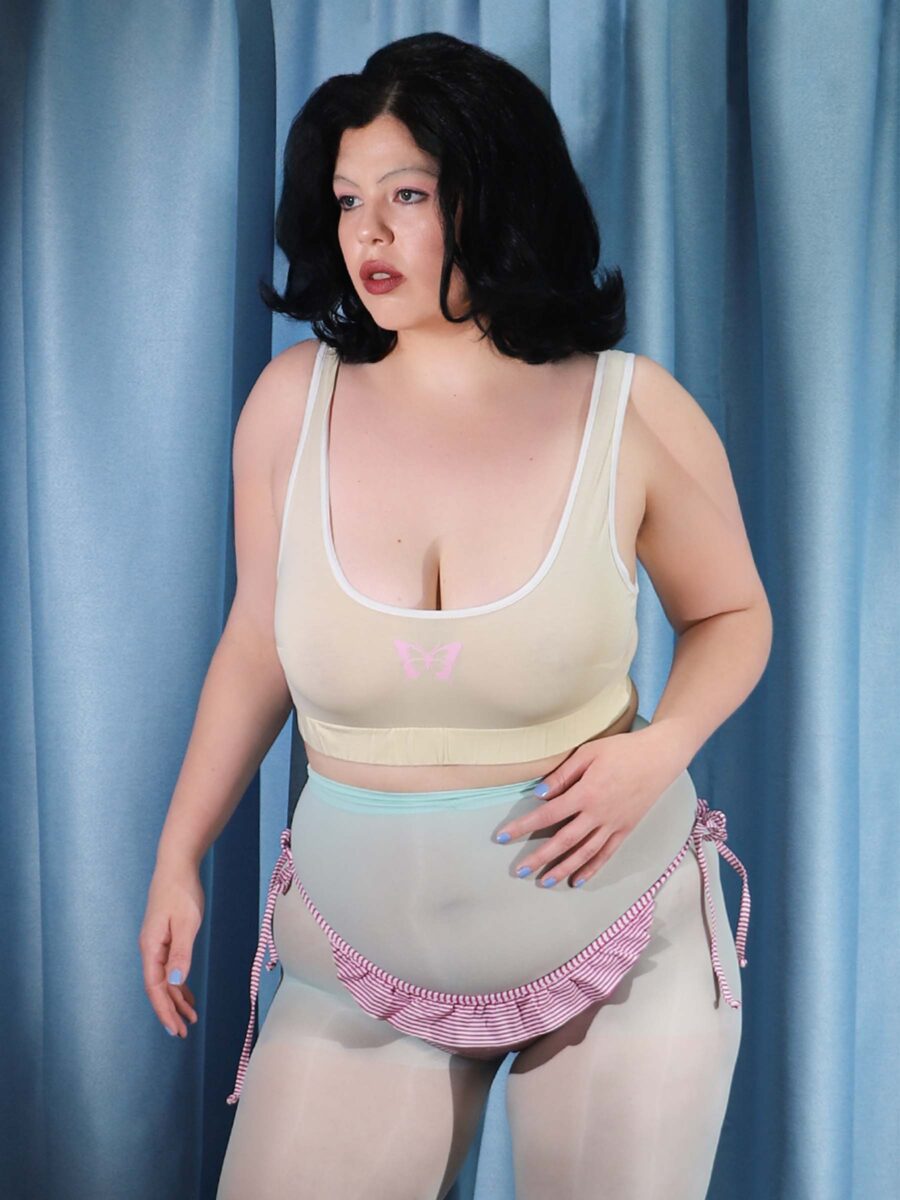
Recently having graduated from Central Saint Martins’ MA Fashion Image course, Hannah Hall is creating her own world, one shot at a time.
Rejecting the male gaze and exploring the underbelly of what feminine and queer identities look like today, emerging photographer Hannah Hall’s graduating project “I never wanted to sell you a fantasy” is a poignant collection of images that shatters the modern day illusion. Leaning into a certain Lynchian aesthetic, Hall’s project finds that sweet spot between the pretty and the eerie.
Despite initially setting out on a fashion design pathway – a ticket out of her small-town upbringing to live her dream in the big city – photography wasn’t always the plan for this young creative. But over time, her side passion for image and film-making took centre stage. In her final year at the prestigious London arts university Central Saint Martins, she fully embraced the medium, instinctively weaving the fashion sensibilities she had picked up along the way into her work.
Ahead of her graduation, Hannah Hall talks with Wonderland about her final project, the disillusionment of moving to London, and what the future holds for her post-university.
Talk me through your latest project, “I never wanted to sell you a fantasy.” What were your inspirations for this?
Originally it was going to be a film, but as I was working on it, I was just doing more photography. I wanted to go more for the idea of it being a book that feels like a show, like a performance, [and] each page reads as a story.
Whilst I was doing my Masters, I was working. I couldn’t afford to live in London because it’s so expensive. So I was living in a small town outside of London and also working in a pub there, and it was very quiet. We just got regulars, so I was just people-watching a lot of the time. I grew up in a small town as well, so it was my first time in like a decade, being back in a small town. It would just remind me of all these feelings and thoughts and reflections, of things I [had] been avoiding for a long time. So a lot of [my project] was inspired by [that.
Did you have a message that you intended to convey with this project? And did people get it?
I actually think people understood the message a lot more than I expected them to. Because I’m visually telling you something, [I] can’t really control how people read that when the words aren’t with it. So I wanted to portray this idea of contradictions and nuances living together. I mean, it’s in the name: “I never wanted to say, your fantasy.” It’s this idea of what you portray to the world, but then the emptiness and the melancholic feelings that lie within that at the same time.
Underneath these beautiful images and feminine aesthetic, there’s an underlying feeling of uneasiness or sort of eeriness. Is that something that you wanted to convey?
It wasn’t something I wanted to convey, but I feel like even whilst doing it, I had this idea of what I wanted to do. So at the same time, it was intentional. I don’t think [it was] until even really the last month, looking back on it myself, [that] I realised what I was actually doing. As I said, I grew up in a small town, and then did this thing a lot of people do, where they run to the city and are like, ‘I’m gonna reinvent myself.’ But [you ended up] living this life, but [it] wasn’t truly authentic. In that time, [you] also just [are] finding temporary vices to kind of dismiss any thoughts of emptiness or loneliness that were there. So that was what I was genuinely trying to portray without even realizing it. And I do think people picked up on that, which is really nice.
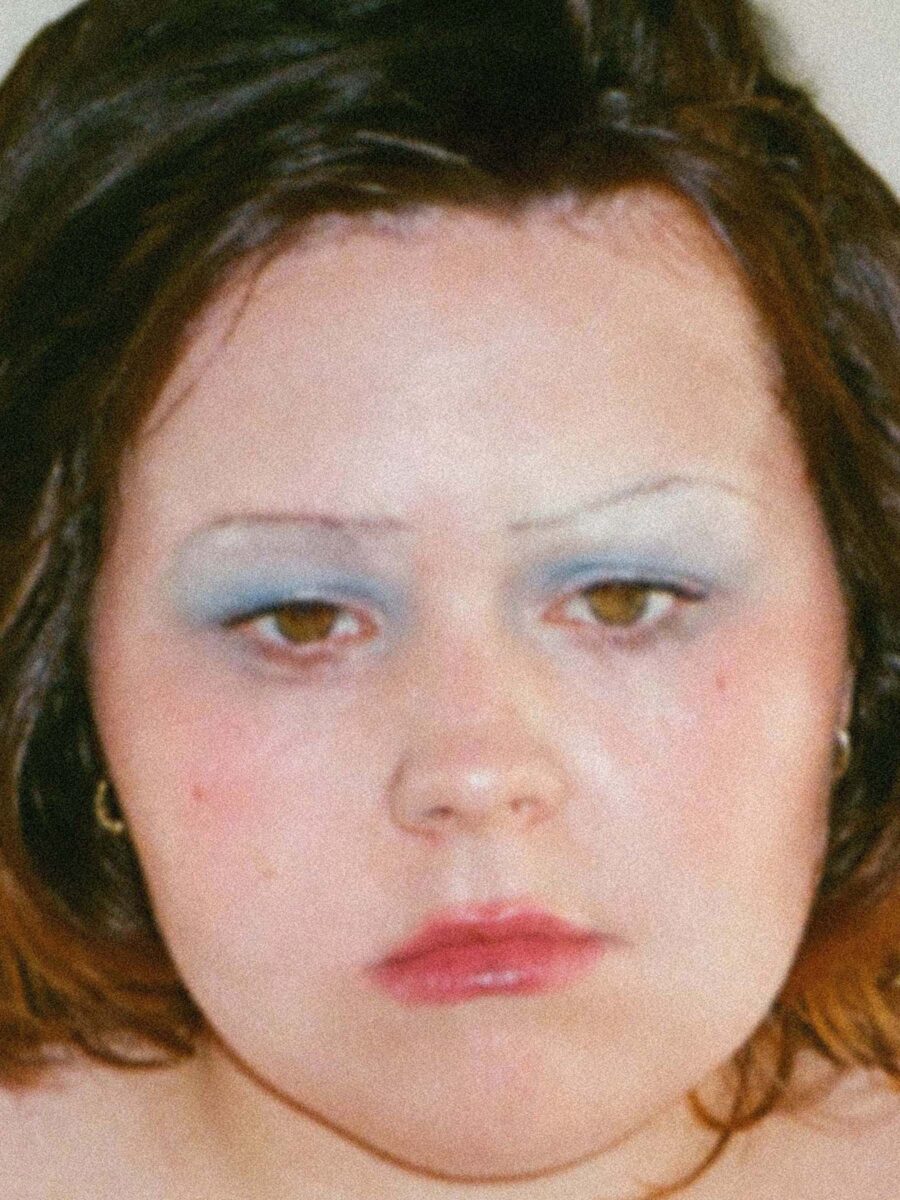
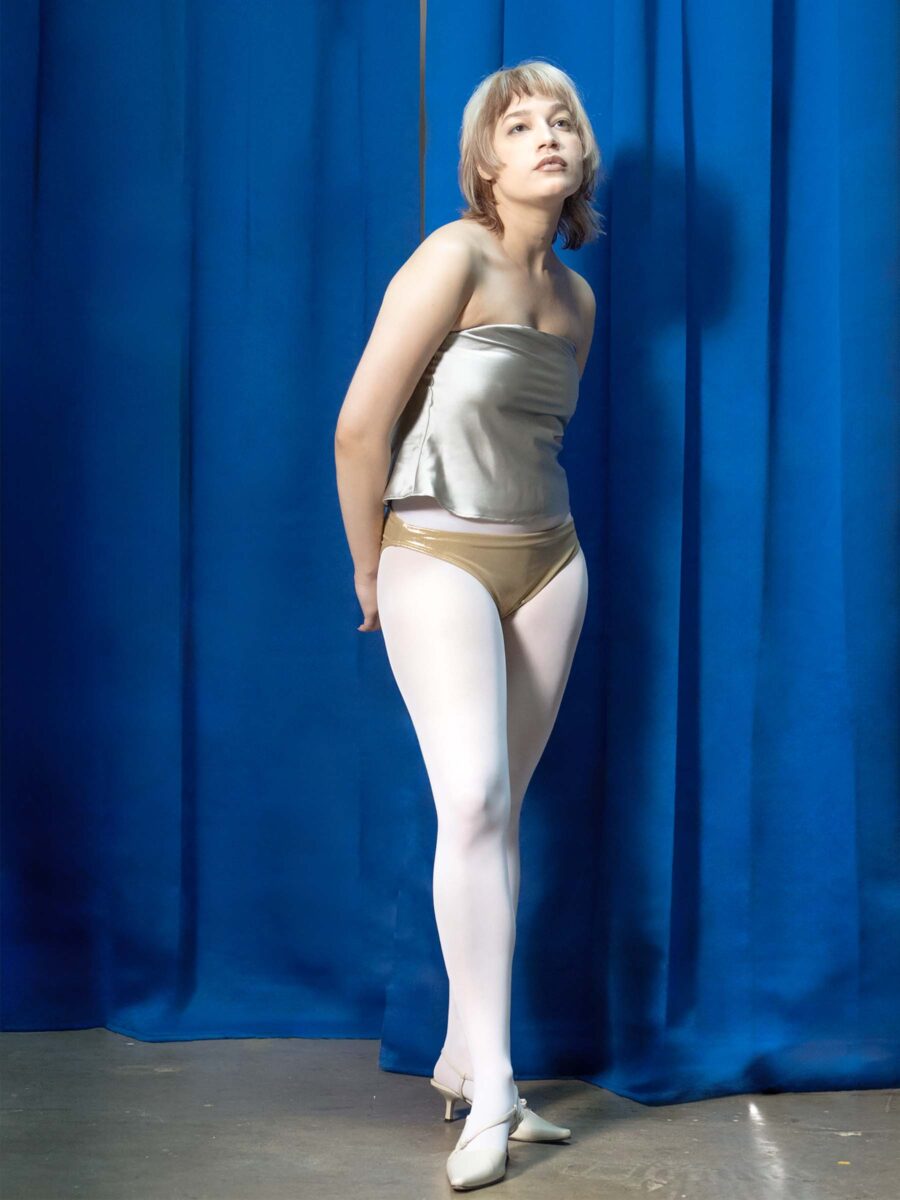
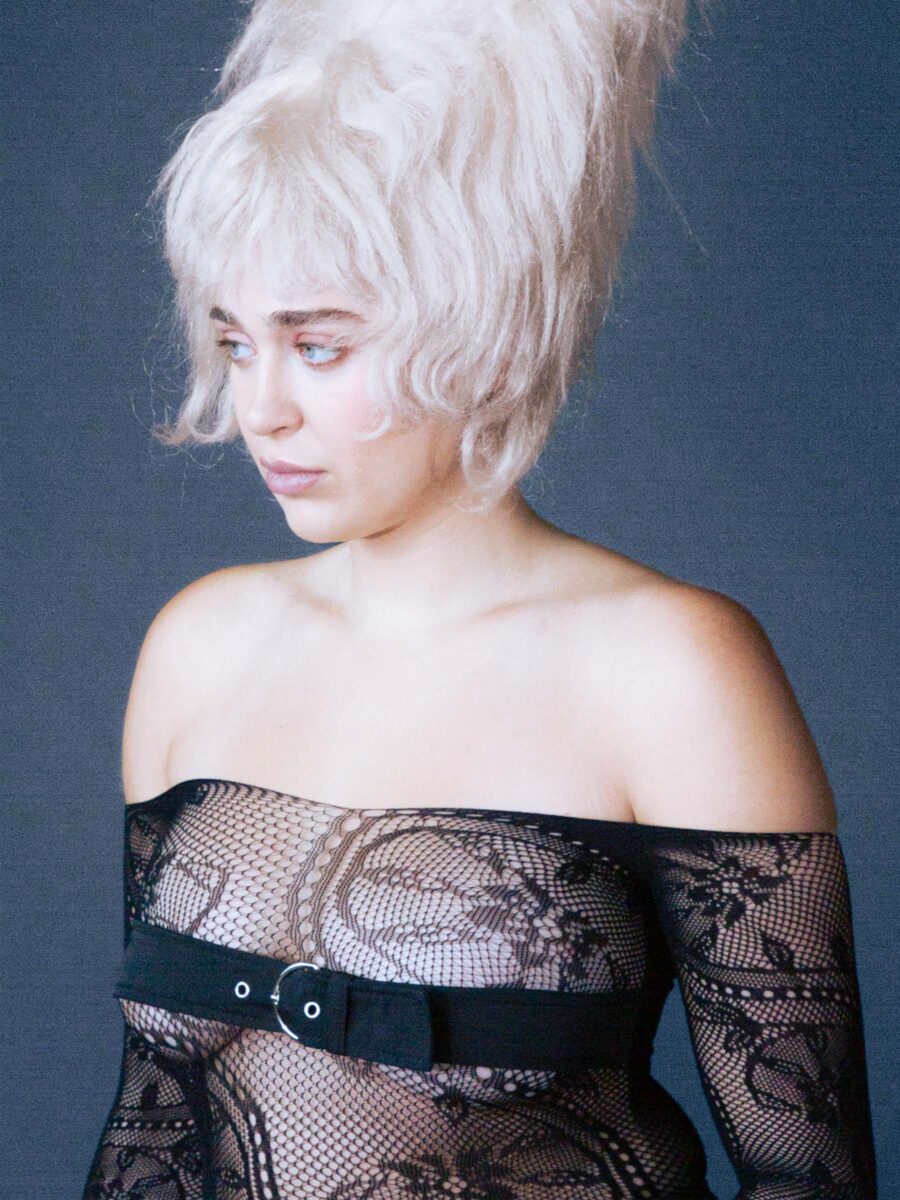
Courtesy of Hannah Hall
Do you find that it’s important for people to interpret your work the way you intended them to?
I don’t necessarily feel it’s too important for people to interpret the work the way that I want them to. I mean, it’s always nice when they do, but at the same time, I think that’s the whole thing of being an image maker. Once you put the work out, you don’t control it anymore. You can’t force people to see it the way you want to. I think that’s also why you have a responsibility to make sure the work you’re putting out can’t be misinterpreted in a way that may be insensitive to people. It’s a responsibility I like to think of when I’m making work. I always try and make sure that I’m [at the same time] free with my work, but also careful with how it can be interpreted.
These images deal with very personal topics such as identity, womanhood and queerness. Did you draw this from your own life experiences to express these themes?
[They] are very personal to me and do stem from themes of my own personal life. But I like to say it’s semi-autobiography, right? Rather than like a full autobiography of who I am. I like to take themes of things that have happened throughout my life and then use them to create new narratives and performances.
The way I cast with people a lot of the time, they can also relate to those themes. They bring their own experiences with it. So it’s creating this new mesh and narrative of combining us all together, rather than just being specifically about me.
Let’s take it back to the beginning. How did you first get into photography? And do you remember your first experience with the camera?
How I first got into photography is kind of funny, because when I was 16, I was actually supposed to study photography at college. I moved down to London, I got on the course. But then a few months before I started, I found out [the college] also did a fashion course. It was the first time in my life I found out you could study fashion. Obviously, I read magazines, I looked at designers, but I never actually wondered how they got there, because it was so disconnected from the life I was from. I didn’t realize they studied and intentionally became these people. So I honestly just did it because I was like, ‘sounds fun. Like, let’s do that.’ Then once I started doing that, it was the first time in my life that people told me I was good at something, so I just carried on with it.
Then I did my BA in fashion design at Central Saint Martins. Once I got there, I realised, ‘oh, maybe I don’t like this as much as some other people.’ You get people where it’s like, it’s their life ambition. They’ve wanted this for so long. Whereas I was just kind of going along with emotions. But I don’t regret it at all. I actually think I got so [many] important life experiences from doing that.
And even when I was doing that [degree], I was still image making. I was making films. A lot of my work would be involved with self portraits. I was still making images going along. Once I graduated, I just went and explored loads of different [creative avenues]. And then I came back [for a] Masters, still not with the intention of being a photographer. I thought I was going to do art direction or something like that. But I just kept on going to the studio, and I kept on loving it and making work, and then I just accepted my fate.
You mentioned both doing some like short films and some still photography. How do those two differ in the way you work?
That was something that took a while to figure out, because I did start off doing [films], even when I started [my] Masters. Like I said, I thought [my graduate] project itself was going to be a film. But I felt like every time I was filmmaking, I was just putting too much into the project. I was making it too obvious. I was making the message too obvious. I was putting obvious props in. Although I [really do] like some of the films I made, I just found that when I used photography, I was being a lot more stripped back and allowing the nuance within the image, rather than delivering it to the person.
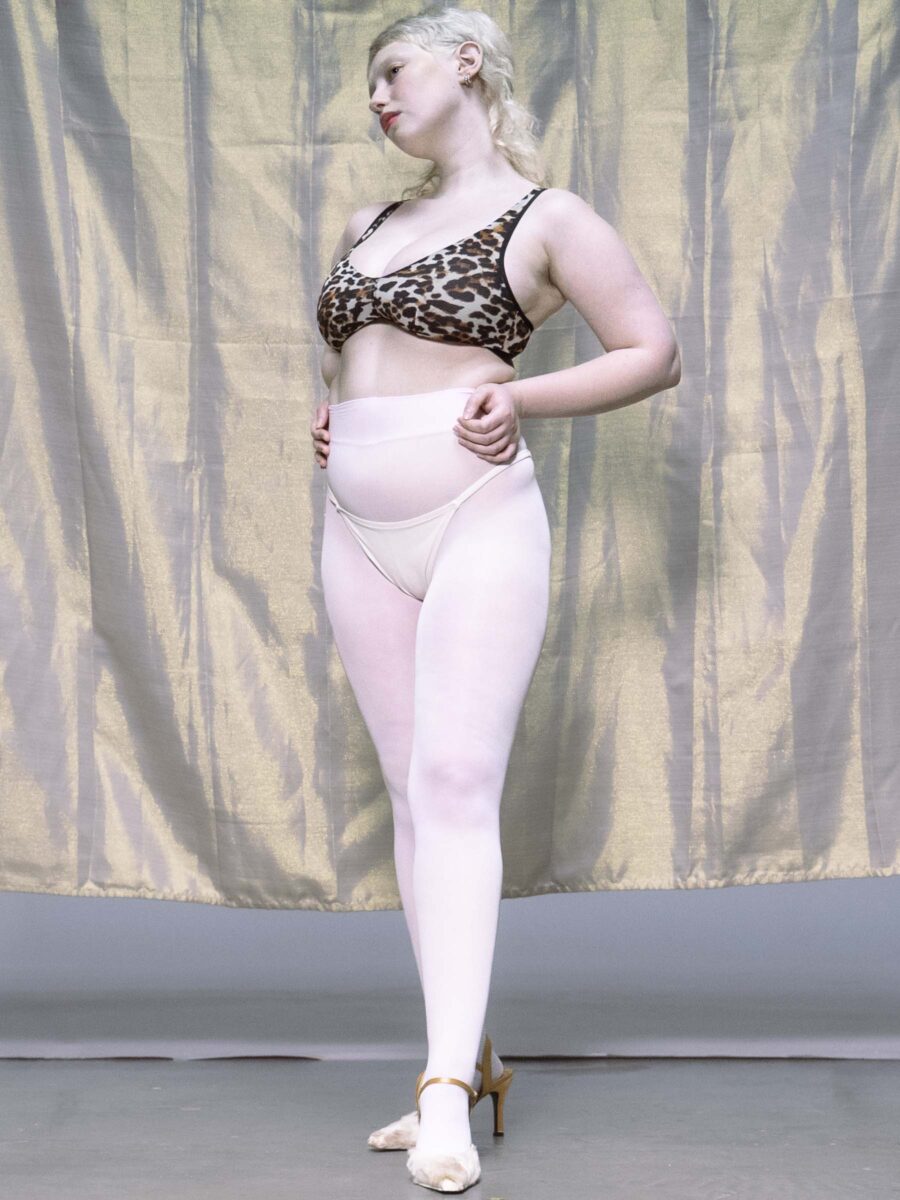
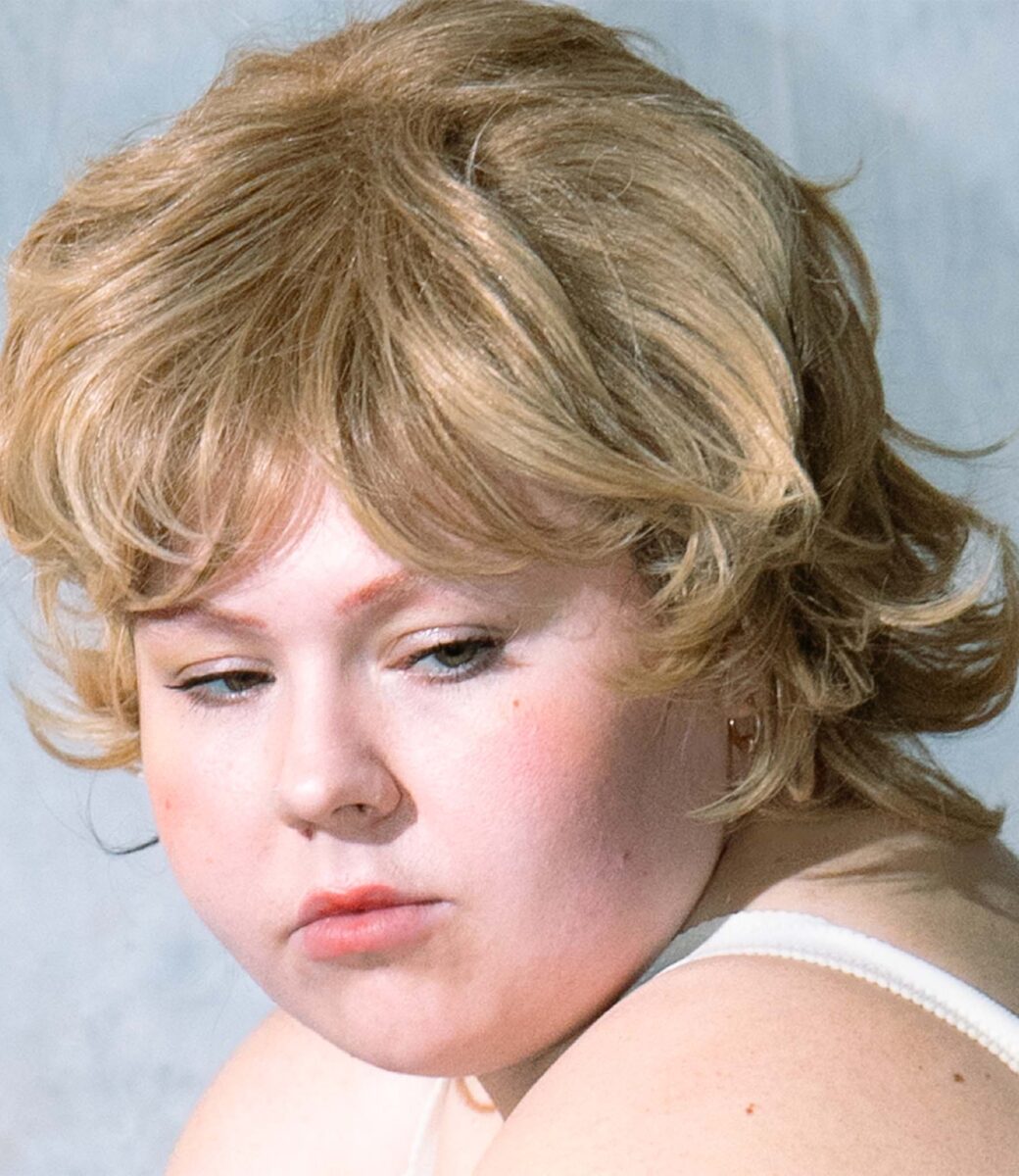
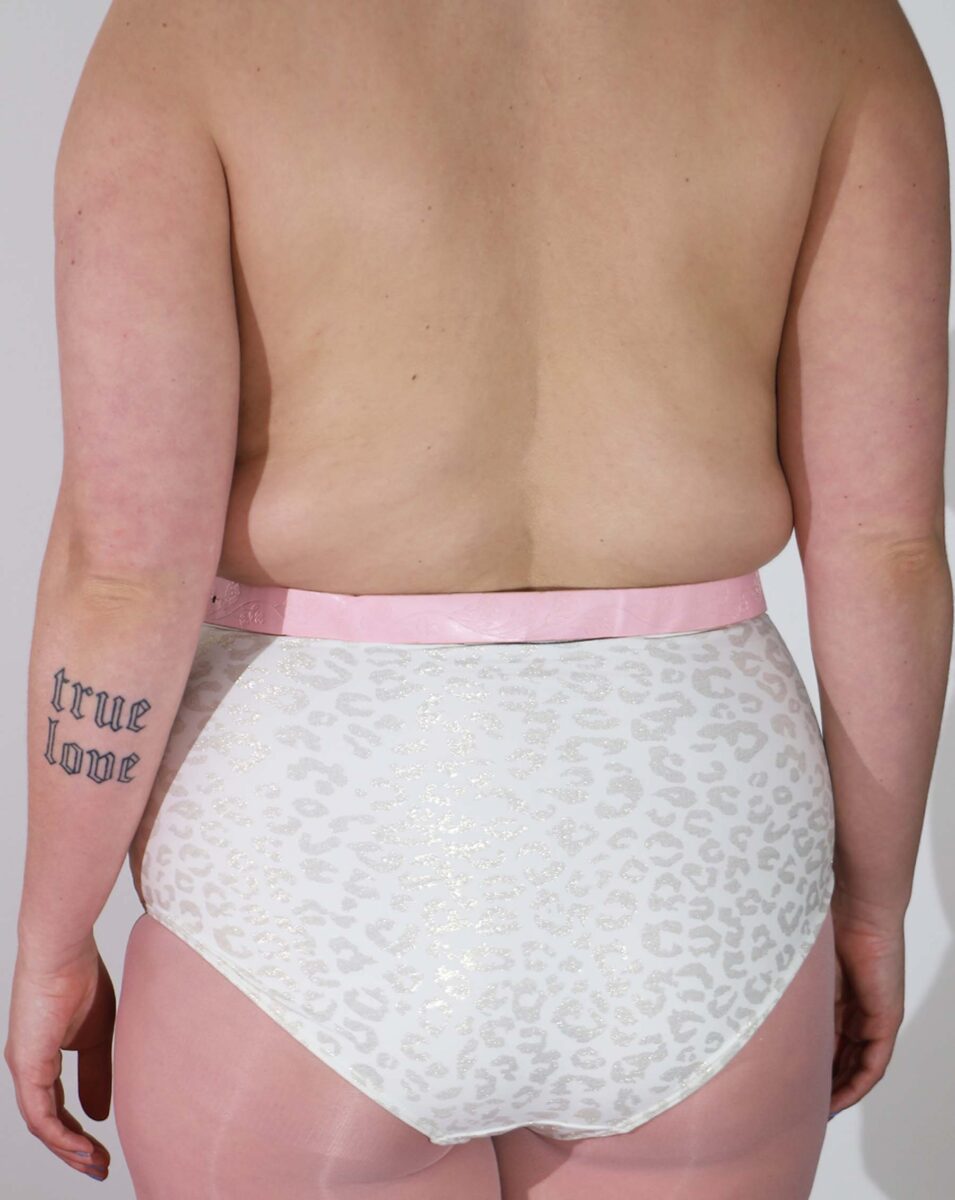
Courtesy of Hannah Hall
Congratulations on graduating! What is one lesson that you learned from university that’s going to stick with you?
One lesson I learned from university, and it’s such an important one, because, like I said, I hadn’t done photography before starting the course, except for my own version of making images. I didn’t actually know a lot of basic knowledge that you needed to know. There’s some things I’m actually a little bit embarrassed about that I didn’t know, [it] was so obvious. But one thing I found is that my classmates and my friends were always so willing to share their knowledge. They were never scared or intimidated to be like, ‘Oh, this is how I do it. And I’ll show you exactly how I do it.’ Because they show me so much kindness, I was just like, ‘oh, this is how I want to go along.’ I want to always be sharing [my knowledge].
What are your post grad plans? Is there any project that you’re working on currently?
The project I’m working on currently, I’m actually now starting casting for. I want to do more short projects, but I want them to connect together. It’ll still be the same thing [as] these still images that feel like stills on film, but more short and kind of coming out a bit more rapidly.
Is there a certain person that you dream of shooting, or someone that you dream of working with?
Someone I’d really love to shoot is Shygirl. I think she’s amazing. I think she’s honestly one of the most talented artists currently in our time. She’s so authentic to herself, but she also knows how to perform, and she knows how to do a character, and she knows what she wants to say to people. That’s someone I really look for when it comes to casting.
Do you have any goals or manifestations for the new year?
My goal is I just really want to meet and collaborate with so many people. I want to travel as well. I’d love to travel over to cities and work with people out there. I just really [want to be] making good work and just finding people who kind of have the same ideology when it comes to making work as I do.
Words – Juliette Eleuterio
Content shared from www.wonderlandmagazine.com.

